'Dry January Makes Me Feel Like The Best Version Of Myself'
"Hearst Magazines and Yahoo may earn commission or revenue on some items through these links."
Ringing in the New Year often comes with a slew of resolutions, goals, and challenges. And with the sober-curious movement gaining momentum, you’ve likely heard the hype around Dry January. But whether you’re an occasional glass of wine drinker or you overdid the spiked eggnog during the holidays, it’s worth exploring the sober month for its major health benefits.
First things first. Dry January is not just about “detoxing” the body. “Regardless of how much someone usually drinks, it’s really beneficial for people to assess their relationship with alcohol,” says Molly Kimball, RD, a registered dietitian who runs Alcohol Free for 40, a yearly alcohol-free challenge between Ash Wednesday and Easter. In fact, based on Kimball’s annual challenge study results, all participants have noticed less inflammation, better sleep, reduced anxiety, and improved mood and energy levels after giving up booze for 40 days. Dry January comes with similar benefits.
On top of the health outcomes, there’s also a worldwide community who participates in Dry January. “It’s so helpful for people to know that they’re part of a bigger movement and they aren’t doing it alone,” says Kimball. “Knowing that people all over the world are going through the same thing gives a sufficient level of support.”
Not to mention, Dry January is a great way to test the sober waters, adds Kimball. “It offers a start and end point so it doesn’t feel like a forever thing you’re committing to.”
And no, Dry January is not for any specific kind of person. Even if you drink moderately or feel you have a healthy relationship with alcohol, participating may give your body and mind a reset. Curious? Read on for more details about Dry January, including how to do it successfully and the benefits.
Meet the experts: Molly Kimball, RD, is the founder and director of Ochsner Eat Fit nonprofit initiative in New Orleans and host of the FUELED podcast. Vanessa Kennedy, PhD, is the director of psychology at Driftwood Recovery in Driftwood, Texas. Trang M. Vu, MD, is an internal medicine physician at UW Medicine in Washington. Brigitte Zeitlin, RDN, is the owner of BZ Nutrition in New York City. Keri Peterson, MD, is a WH advisory board member and specializes in internal medicine.
What is Dry January, exactly?
It's pretty straightforward—you steer clear of alcohol for the entire month of January.
The concept actually originated in the U.K. in 2013, when a nonprofit called Alcohol Change UK started the movement with the goal of raising money for alcohol abuse awareness and treatment.
The trend caught on around the globe, and now lots of people choose to take part in Dry January as a way to simply drink less or reset after a month or two of holiday festivities.
How do I know if Dry January is right for me?
If you're going to successfully abstain from alcohol for an entire month, it's important to understand why you're doing it. It's perfectly normal to want to cut back on booze after the holidays, especially if you feel like you haven't had control over your intake.
First, it's useful to understand what even counts as heavy drinking. Heavy drinking is generally considered as having more than eight drinks in one week, per the National Institute on Alcohol Abuse and Alcoholism, while binge drinking is having more than four drinks within two hours.
Secondly, you should know that these types of alcohol consumption come with negative health effects, which are a good reason to rethink your drinking habits.
"With binge drinking, the blood alcohol level increases rapidly, and with increasing blood alcohol level, the risks of impairment increase," says Trang M. Vu, MD, an internal medicine physician at UW Medicine in Washington. These impairments include reduced inhibitions, motor discoordination, and memory problems, which can lead to car crashes, falls, risky or violent behavior, and more.
Similarly, heavy drinking is not great either if you do it on a regular basis: "Over time it can cause chronic medical problems like chronic liver disease, high blood pressure, increased risk of certain cancers, osteoporosis, nerve pain, and alcohol use disorder," says Dr. Vu.
If you are engaged in binge or heavy drinking, consult your doctor before abruptly quitting for a month. "Frequent binge drinking or heavy drinking can build up your tolerance to the effects of alcohol, and stopping can lead to withdrawal, which can range from shakes, anxiety, irritability, insomnia, nausea, and vomiting to very severe symptoms like hallucinations, delirium, coma, seizures, and death," says Dr. Vu. Your doctor can help you determine how best to slow down or stop drinking based on your current habits.
If you don't have a problematic relationship with alcohol but try Dry January anyway, you'll still see several positive health benefits. You may not notice them within the first month, says Dr. Vu. But if you keep limiting your alcohol intake or abstain all together, you'll feel more of the benefits.
The Health Benefits Of Dry January
There are a lot of potential pros, TBH (you know, in addition to saving money, because alcohol is expensive AF). Here's what you can expect.
1. You'll sleep better and have more energy.
“It may sound counterintuitive, since most of us are likely to quickly pass out asleep after a night of drinking more than usual, but too much alcohol actually screws with your sleep status,” says Brigitte Zeitlin, RDN, a registered dietitian and owner of BZ Nutrition in New York City.
After having a few drinks, your body doesn't get a chance to reach deep sleep, which you need to help your body de-stress, repair, and replenish itself for the upcoming day, she adds.
When you ditch the alcohol, however, you won't have those sleepy yet restless nights. "Practicing a sober month will actually help you sleep and have you feeling more restful and energized in the mornings," says Zeitlin.
2. Your skin could clear up.
Alcohol is a diuretic, which means it can make you go to the bathroom more frequently—and ultimately leave you a bit dehydrated, says Zeitlin. And that dehydration can take a serious toll on your skin.
“We tend to forget that we still need to focus on hydration during the cold months because we aren’t sweating, but the winter dries out your skin and body more than you realize,” she explains. “By ditching the alcohol and upping your water intake, it’s really a win-win for your hydration status and will leave your skin feeling healthier and looking more radiant.”
Plus, the high levels of salt and sugar content in alcoholic beverages may trigger the hormone IGF-1, which causes an overproduction of oil in your skin (hi, pimples!). Pair this with spiking insulin levels that cause inflammation and you’ve got yourself a recipe for acne. A booze hiatus can also potentially improve acne for those who have it.
3. You may lose weight.
Dropping pounds when you take a break from booze is pretty standard, says Zeitlin—in fact, if you were to make zero other changes to your diet (except for cutting alcohol), you'd still probably lose weight.
“One alcoholic drink is typically 150 to 200 calories, which can really add up,” Zeitlin says. “Additionally, when we drink a lot we tend to eat more than we realize as well, so cutting back on the alcohol will likely help you to also cut down on some of the mindless overeating that usually happens after the third (or fourth or fifth) round of cocktails.”
As an added bonus, you may find that you are less bloated or puffy without those nights of drinking too much, which in turn will make you feel naturally leaner and better, Zeitlin says.
4. Your immune system could get stronger.
Being drunk can suppress your immune function, which can make you more vulnerable to the pathogens that cause the cold and flu, among other things, says Keri Peterson, MD, a WH advisory board member. In addition, frequent drinking can cause inflammation throughout the body. All of this means taking a break from booze could help you better fight off any seasonal illnesses. Getting better sleep because you're sober certainly doesn't hurt either.
5. You may feel less anxious.
The day after drinking, you might have the typical nausea and headache that come with a hangover. But you might also experience what's called "hang-xiety," or anxious feelings that are experienced as part of a hangover, says Dr. Peterson. If you stay away from booze for a month, you'll be hangover- and hang-xiety-free, which means more peaceful nights and less worrisome mornings.
Booze can also exacerbate and over-sensitize how you respond and react to stress, says Kimball. For example, something that might only elicit a level three or four stress response on a theoretical stress scale may reach an eight or 10 after drinking, she explains. “Most people find they handle stressful situations better without alcohol.”
6. You'll have less headaches.
Another benefit of Dry January? Less headaches, says Dr. Peterson. These are usually brought on by the dehydration that happens when you drink. They're also a classic hangover symptom that you won't have to worry about during your dry month.
7. Your overall health will improve.
As your body adjusts to a lack of alcohol, your blood pressure will likely lower and your liver will heal from any effects of heavy or binge drinking, says Dr. Peterson.
How do I actually do Dry January successfully?
First, determine and understand why you’re committing to Dry January. “Knowing your motivation will keep you more mindful of triggers or moments of wanting to give in,” Zeitlin says. “Tapping into your personal reasons as to why you’re doing this will help you hit that 31-day marker.”
From there, consider the following suggestions from the pros.
Expert Tips For A Meaningful Dry January
1. Make goals.
If you have tangible goals, it can make getting through a successful Dry January a little easier. Some examples of goals you may have for your Dry January are to spend less on drinks while dining out or to get better sleep on the weekends. "Goal setting is a great way to visualize the what, when, where, and how you plan to abstain from alcohol," says Vanessa Kennedy, PhD, the director of psychology at Driftwood Recovery in Driftwood, Texas.
When making your goals, Kennedy suggests trying the SMART approach, which means making sure your goal is (S)pecific, (M)easurable, (A)ttainable, (R)elevant, and (T)ime-bound. An example might be: I want to get eight hours of sleep on Friday and Saturday nights for all of January, and I'm going to track my sleep with an app on my phone to keep myself accountable.
2. Find a support system.
Ask for support from family and friends if you need to. "There is no better 'commitment device' than support, encouragement, and even healthy competition with others," says Kennedy. Maybe you can challenge other friends to complete Dry January with you, so that you can all hold each other accountable. If you're looking for support outside of your circle, Kennedy suggests using social media to find other Dry January support groups in order to collect tips and tricks that are helping people maintain sobriety for a month.
3. Avoid or plan for triggering situations.
Maybe it means skipping happy hour, or avoiding trips down the wine aisle at your supermarket to avoid the temptation of drinking. Kennedy suggests swapping in other activities that help you relax for the times when you'd usually grab a drink. "If you know you tend to drink at home after a long day of work or school, what alternative healthy activity can help you relax? Perhaps a walk with your dog, a trip to the grocery store, cooking, or exercise could be helpful," she says.
4. Plan how to say no.
Figuring out how to turn down a drink now will help you avoid awkward conversations later on. "Planning what you are going to say and what your boundaries are ahead of time can help you deal with these situations when they arise," says Kennedy.
Some ways to say no include being honest and saying you're taking the month off, or simply saying, "No thanks, I'm good." You can handle the conversation however you feel comfortable doing it, but rehearsing before can help it flow more easily. Don't worry about offending others while saying no, though. "Most likely, people who care about you will be supportive and encourage your efforts to stay sober," says Kennedy.
5. Find alternative activities to drinking.
Now's your chance to pursue the hobbies you've wanted to but haven't been able to dedicate any time to. "Think, 'I've really been meaning to...' and fill in that blank and actually do it," Kennedy recommends. Maybe it's exercising more, participating in more phone calls or Zoom sessions with loved ones, organizing your closet and donating clothes, or reading that best-seller. Now's the time to pursue the self-care you might otherwise neglect, says Kennedy.
6. Have a plan for if you slip up.
Slipping up doesn't mean failing, and it isn't a reason to give up on Dry January completely. Just figure out how to get back on track. "Make a plan to course-correct and learn from it. Take the time to understand why you drank and make a plan for how to stay sober through the situation next time," says Kennedy. Be easy on yourself, and don't get discouraged. Slipping up is not uncommon with big lifestyle changes.
7. Keep a regular log or diary.
If you want to see how your mood and health shift from abstaining from drinking, keep a regular log or diary to see how things change as you go farther into the month. "Keep a log of how you feel, track your sleep, exercise habits, and maybe even get a physical at the beginning and end of the challenge to see if you've made some changes in your health," says Kennedy. The log can give you a tangible view of the changes you've experienced.
8. Have fun with it.
If you’re used to drinking every day, Dry January may be a shock to the system, says Kimball. To help combat negative feelings, remember this is not a punishment. “Focus on the benefits whether it’s better sleep, lowering your blood pressure, or reacting better to stressful situations,” she explains.
If you're actively finding ways to make the best of it and if you're comfortable inviting others to join you, the experience can be a positive one for all those involved by strengthening relationships and helping you feel better both physically and mentally. "The challenge can be a true bonding experience and may lead to longer-lasting changes than you thought. The majority of people who decide to try a Dry January find that they make healthier choices when it comes to their drinking year-round," says Kennedy.
9. Find mindful substitutes for alcohol.
There are several alternatives to alcohol, but how you go about choosing your preference is essential. Kennedy suggests opting for low sugar mocktail mixes and sparkling water. Kombucha is another fun, zesty alternative with seasonal flavors, adds Kimball. Additionally, you can stick to herbal teas or hot chocolate to substitute warm alcoholic drinks in the winter months.
Some believe that drinking non-alcoholic beer is the best option, but Kennedy warns that this concept may be too close to the real thing. "For someone with an alcohol use disorder, it may not make sense to drink non-alcoholic beer. It’s just too close to the real thing and may trigger strong associations with drinking," she explains.
What is it like to do Dry January?
If you're skeptical about the benefits of taking on a Dry January, look no further than the #DryJanuary hashtag on social media, where tons of people have shared how the challenge has helped them, from getting better sleep to reevaluating their relationships with others.
"Dry January for me is about clarity. The holidays are very rough on me for personal reasons and I look to Dry January as an opportunity to purge the negative; mentally, physically, and emotionally. It allows me to refocus my time back into my work and into my physical training. It’s my annual reset. Dry January is my time to redefine my goals and to refocus on the present." —Megan Beck
"During my first Dry January I experienced better sleep, weight loss, more money, brighter skin and my mental health improved significantly. I am now 9 months alcohol free all because I said yes to doing a Dry January." —Emma Dickinson
"Every year, Dry January gives me mental clarity and a renewed sense of physical health, which allows me to go into the new year feeling like the best version of myself. In social settings, I am more present with whomever I am speaking with, and I connect with people differently, which is always refreshing." —Melanie Trottier
What happens when February hits?
The first thing Zeitlin advises is checking in with yourself (another benefit of Dry January is having a chance to assess your relationship with booze, she says).
“Ask yourself how you’re feeling without the booze. Did you have more energy, save more money, or lose the few pounds you wanted?” she says. “Then use this as a starting point to re-adjust your relationship to alcohol, if it’s needed."
In some cases, those who voluntarily quit alcohol for a month may end up drinking less even after the period ends—that's what happened in a 2016 study published in the journal Health Psychology; after participating in Dry January, participants reported healthier drinking habits even after the month was over.
Still, if you don't feel any changes, it's fine to go back to how your relationship with alcohol was before the month started. Just keep in mind that it's still a good idea to limit your booze to one or two drinks a night, says Zeitlin.
If you want to ease back into drinking or keep your alcohol intake to a minimum without having to bypass the bar completely, consider going for alcohol-free or low-ABV beverages instead. With more companies now finding ways to cater to the sober-curious, you're bound to find something you love no matter what your drink of choice is—beer or mixed cocktails. Here are just a few of those options:
Kin Euphorics in High Rhode (Non-Alcoholic)
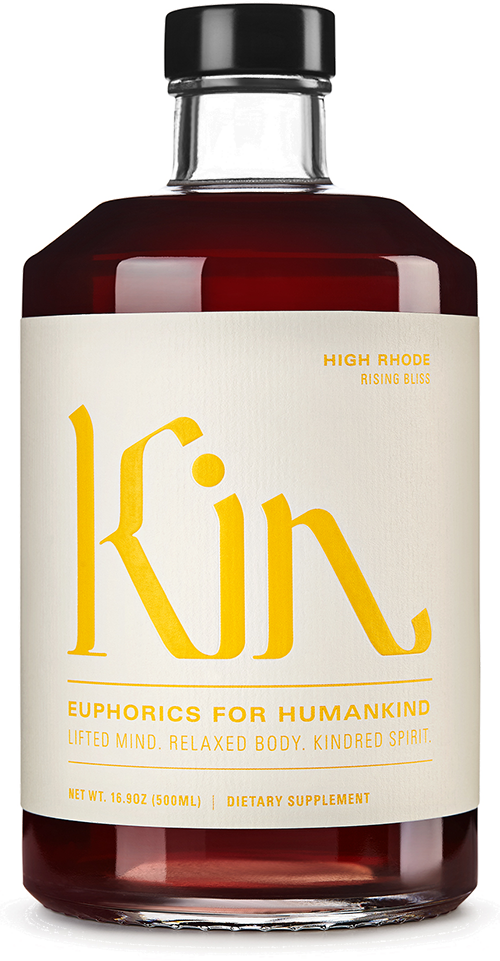
Kin Euphorics in High Rhode (Non-Alcoholic)
kineuphorics.com
$39.00
Run Wild IPA (Non-Alcoholic) 6-Pack
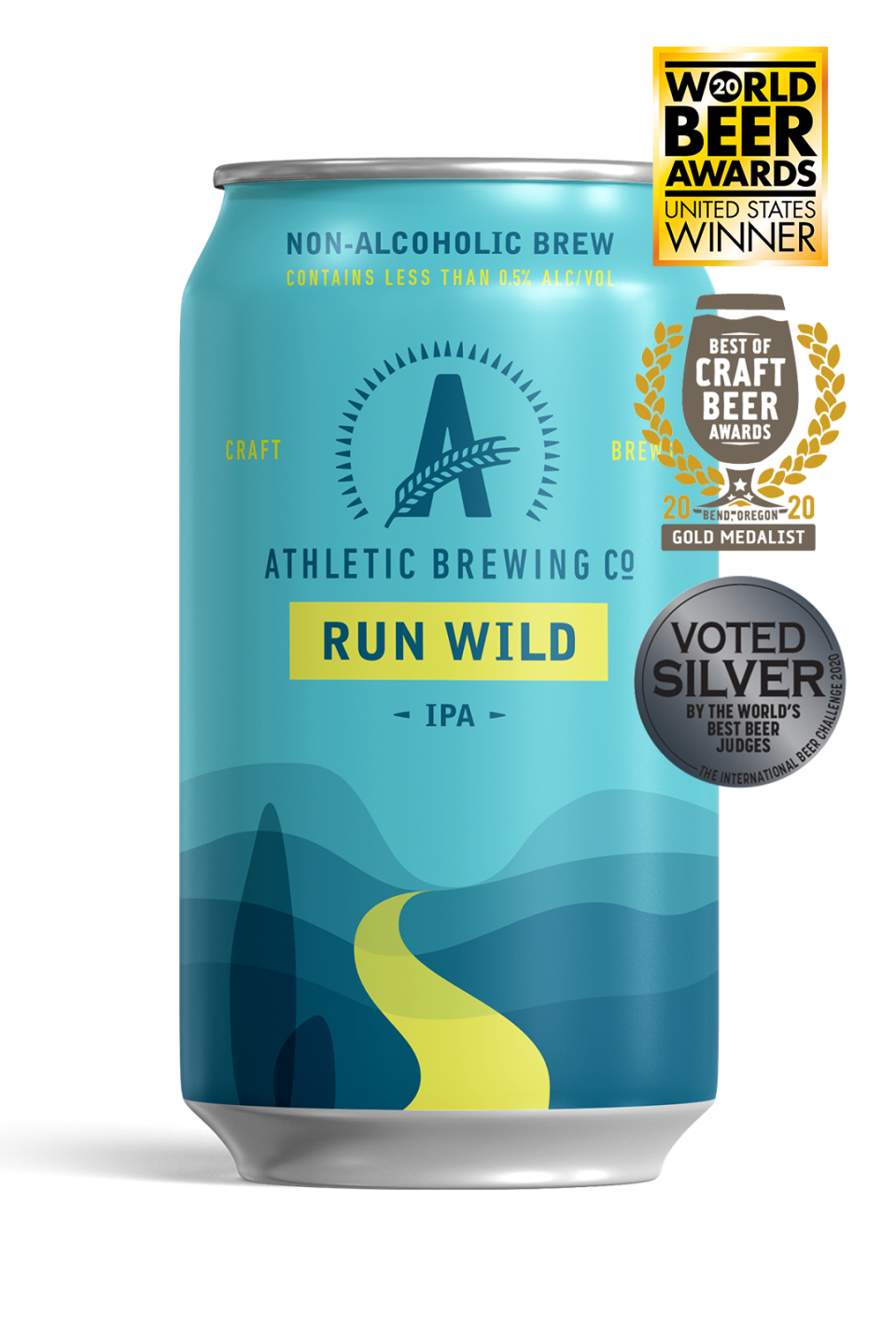
Run Wild IPA (Non-Alcoholic) 6-Pack
athleticbrewing.com
$11.89
CourtesyAriel Cabernet Sauvignon (Non-Alcoholic)
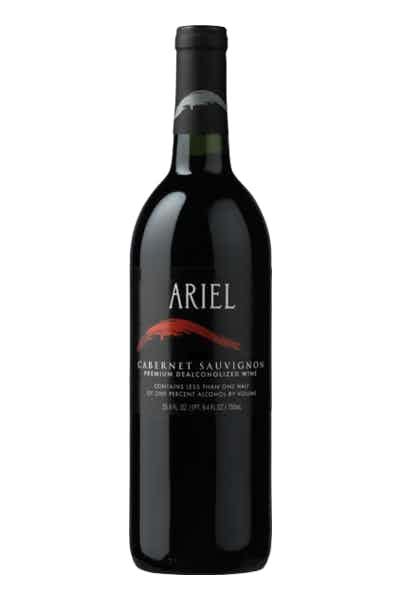
Ariel Cabernet Sauvignon (Non-Alcoholic)
drizly.com
$3.80
White Claw 70 Clementine Hard Seltzer
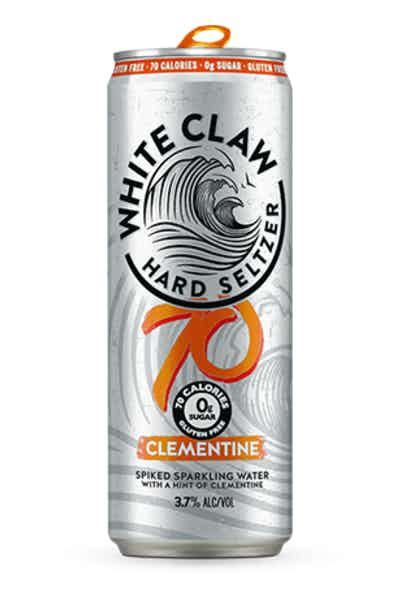
White Claw 70 Clementine Hard Seltzer
drizly.com
$10.99
Spritz Society Variety Pack
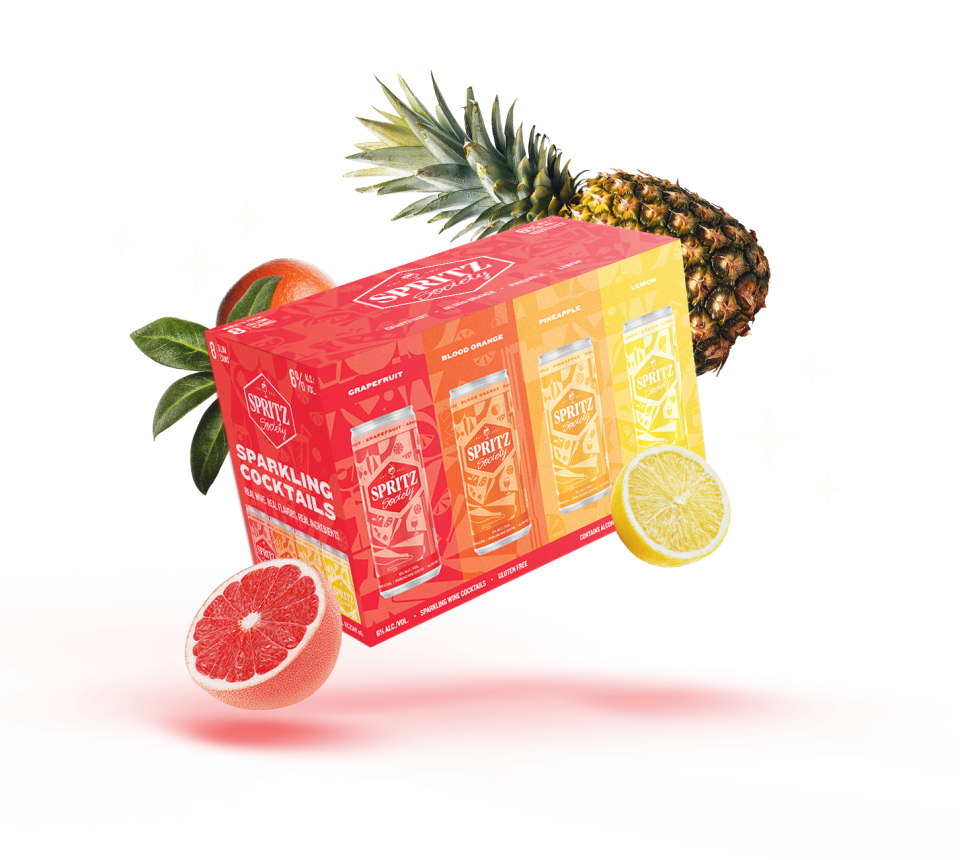
Spritz Society Variety Pack
spritzsociety.com
$50.00
Haus Low-ABV Aperitif in Citrus Flower
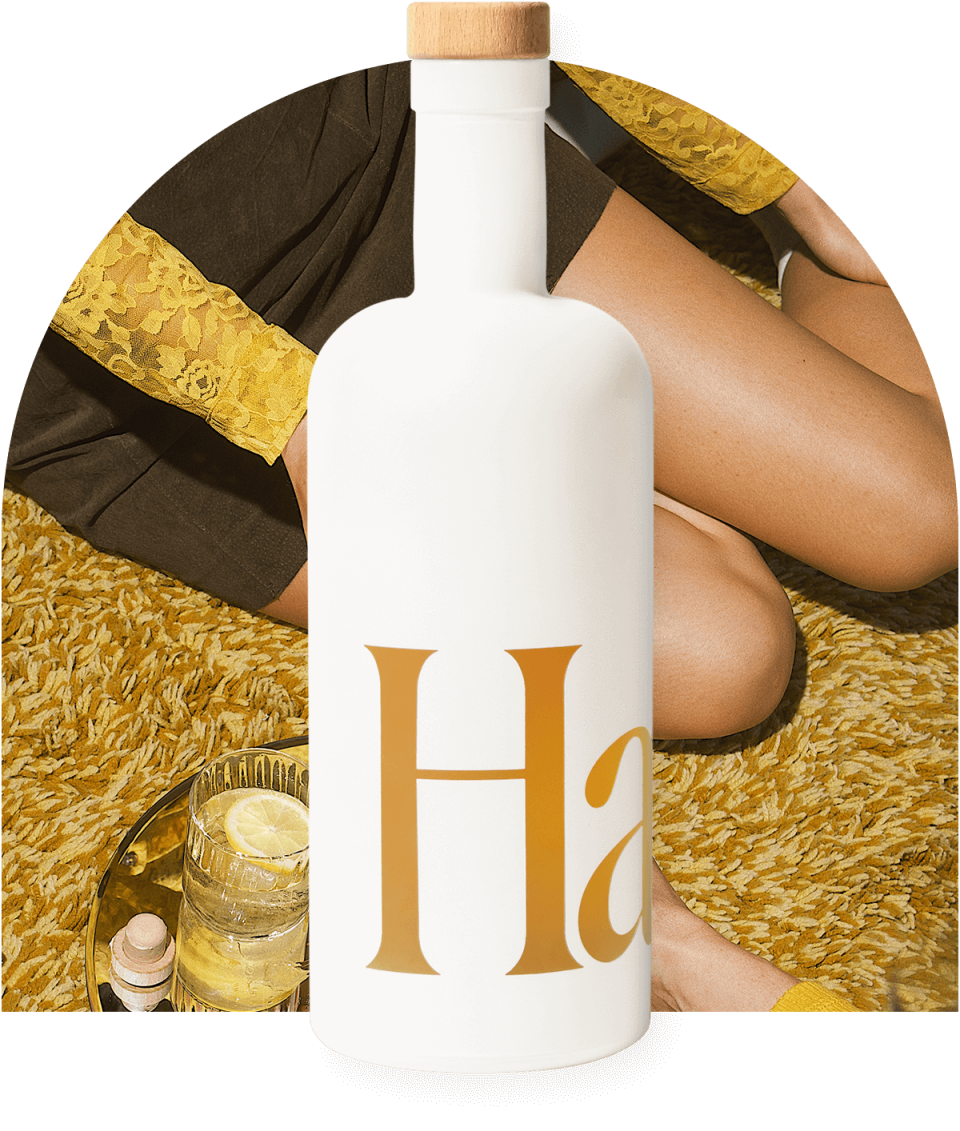
Haus Low-ABV Aperitif in Citrus Flower
drink.haus
$35.00
High Noon Hard Seltzer Variety Pack
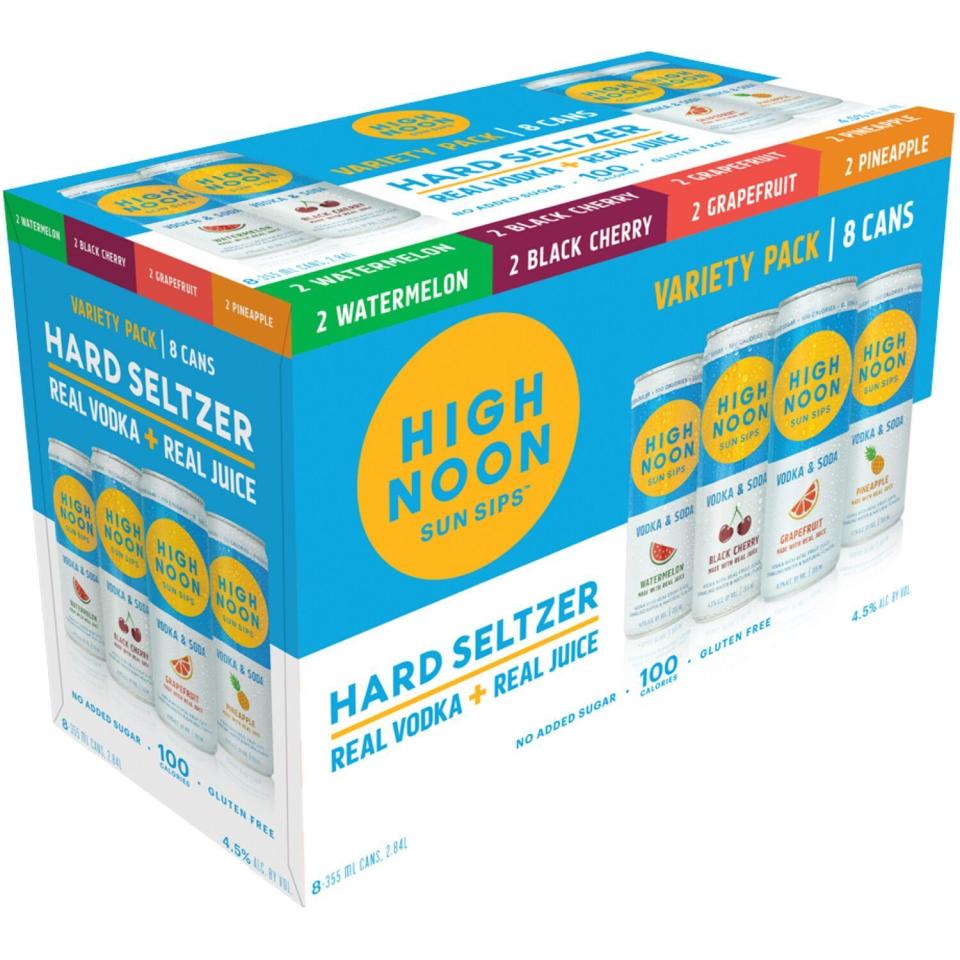
High Noon Hard Seltzer Variety Pack
$22.99
Owl's Brew Boozy Tea
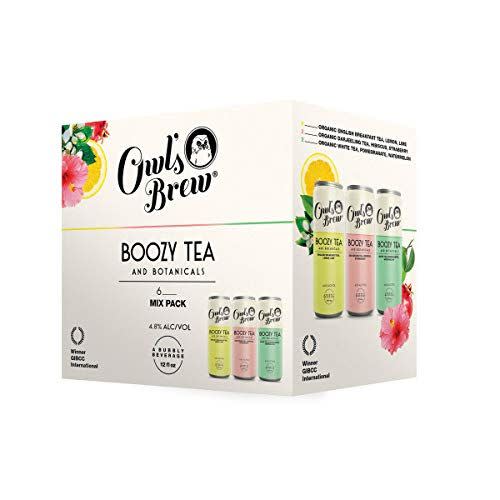
Owl's Brew Boozy Tea
amazon.com
Whether you decide to return to your former drinking habits or not, taking a break with Dry January can make a difference in your health and gives you a chance to reflect on your relationship with alcohol. If you decide Dry January is right for you, take pride in challenging yourself to learn more about yourself and your health.
What if I want to continue my sobriety?
For many, completing Dry January can be the start of a longer sobriety journey, and there are a bunch of programs you can turn to for support if you're interested in doing this. Here are just a few.
Alcoholics Anonymous
Alcoholics Anonymous is a 12-step program designed to support those who currently feel they have a drinking problem or have had one and are now on a path of sobriety with support from peers and raw conversations about addiction. In order to get started with AA, you can take a look at their online resources, search for a local group, or sign up for a virtual video or telephone conference. There are no dues or fees to join.
Women for Sobriety
Women for Sobriety brings together women sharing similar experiences so that they can support each other on their path to sobriety. Their New Life Program aims to help women deal with their feelings of shame and guilt, while nurturing their feelings of self-worth and value. You can check out a booklet about it on their website.
Moderation Management
If you don't want to go sober completely, but instead want to build a healthier relationship with alcohol, Moderation Management is the organization to turn to (though they also offer options for those who want to quit drinking completely). The program facilitates phone and video meetings, but the process is also based in guided self-help, so it requires more accountability from you than, say, working with a coach.
Monument
Monument is an online paid membership program that aims to support anyone on the spectrum of problematic drinking, meaning you don't have to be addicted to join. They offer virtual support groups, online alcohol therapy, and more.
She Recovers
She Recovers is a support group for self-identified women and non-binary people recovering in all areas of life, not limited to but including drinking. In addition to online support groups and a Facebook community, She Recovers also hosts other experiences for their members like yoga and dance sessions, education series that feature speakers in wellness and recovery, and a specific group for people who identify as BIPOC.
When To Get Help From A Professional
If someone is missing days at work or lacking interest in events that do not include alcohol, or hiding alcohol, it may be a sign to consider seeking professional help, the American Addiction Center notes. Many organizations agree that the safest bet is to meet with your doctor or a psychiatrist that can run through a few questions to help with a diagnosis.
It’s important to remember that asking for help is never something to feel ashamed of. It is not a sign of weakness, defeat, or failure but rather strength and courage.
You Might Also Like

